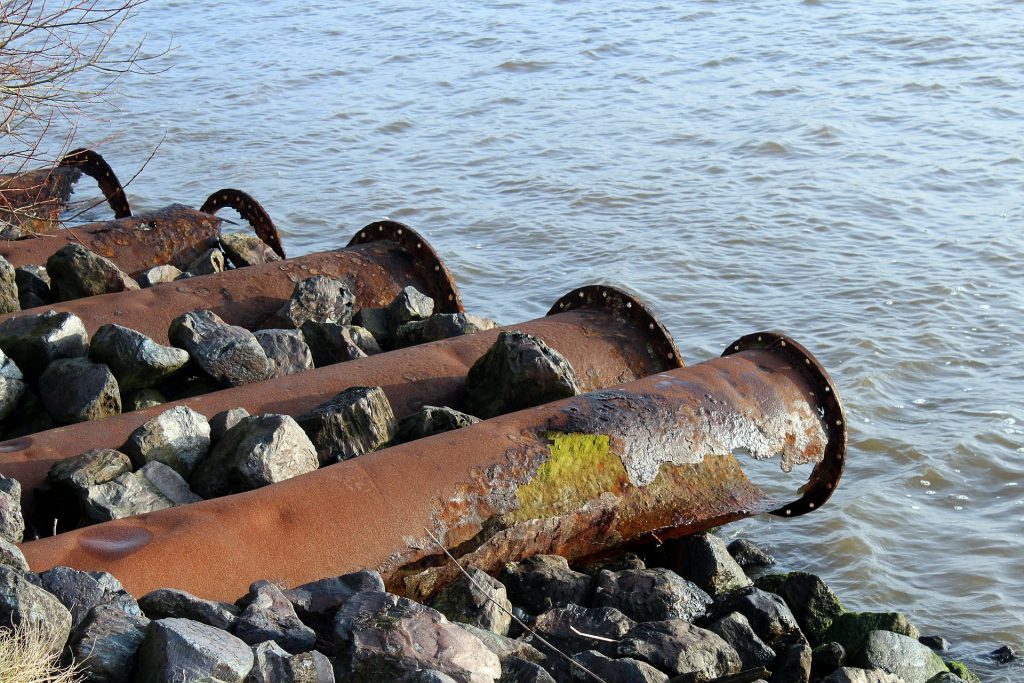Increased blockages, corrosion, and more stenches are just some of the ways climate change will disrupt New Zealand’s wastewater systems, according to new research from NIWA and Tonkin + Taylor

Wastewater systems provide a critical service to society, and their vulnerability to the impacts of climate change places the health and sanitation of many communities at risk. The impacts of climate change on wastewater systems are numerous and can lead to wide ranging implications over changing timescales.
Much of New Zealand’s wastewater infrastructure is vulnerable to the hazards associated with a changing climate. The nature of existing wastewater systems, often designed on past climate and sea-level criteria, mean that they will be significantly impacted in a wide variety of ways including the increasing occurrence of compounding hazards and cascading impacts. It is expected that climate change will impact all elements of wastewater systems, and the essential functions they provide in protecting the health of communities and natural environments.
Sea-level rise and changes in rainfall are expected to lead to impacts with high severity, with further impacts of medium and low severity expected from wind and temperature increases. Impacts will range from capacity and levels of service impacts, to effects on treatment performance and water quality of receiving environments. Impacts are expected to concentrate in low lying areas that are exposed to coastal and inland flooding but will also be distributed throughout the system as increased temperature, groundwater changes and user behaviour changes result in system-wide impacts.
Although originating from a range of climate drivers and occurring throughout the geographically dispersed wastewater system, the impacts that have been identified can be simplified by grouping into three categories: nuisance flooding spills and odour, water quality deterioration due to increased uncontrolled discharges and damage to infrastructure. Each of these ‘impact themes’ propagate numerous interrelated and cascading social, cultural, economic and environmental implications.
Many of these impacts are already emerging and action will be required now, in order to mitigate worsening impacts. Local government authorities therefore need to be aware of climate impacts and risks in order to make important long-term decisions relating to their infrastructure. These decisions need to be considered along with other current and future pressures relating to land use, growth and renewals, as well as the real possibility of insurance retreat over the medium to longer term.
Guiding principles for local government decision makers
The following principles are designed to support councils and asset owners or managers to proactively respond to emerging climate risks to their wastewater systems, as well as assisting them with adaptation decision-making under a changing climate.
Adopting the following principles will best enable local government to manage the impacts of climate change both broadly and also specifically for wastewater systems.
- Factor climate risk into decisions: Consideration of the current and future climate in all decisions for wastewater infrastructure is needed to ensure continuity of service. This includes decisions for asset management, renewals, and planning
- Base decisions on evidence and current national guidance, supported by sound data and local knowledge: This is the basis of informed decision making and best practice in participatory democracy. Using the best available information in education, community consultation, planning and decision making is vital. It includes incorporating reliable sources of scientific information about climate change scenarios, impacts and implications, as well as local and indigenous knowledge.
- Cooperation and collaboration: Identifying and advancing opportunities for collaboration, as well as addressing internal structural and policy barriers or misalignments, will enable improved decision-making. This involves including local and central government, business, communities, lifeline services, indigenous representatives, researchers and other experts, who all have a role to play. In particular, it is important that the knowledge and experience of those affected is respected and they are involved in decision-making.
- Prioritise the most vulnerable: It is important that adaptation responses support those who are most vulnerable to climate change impacts as it is these groups in our community who are often disproportionately affected by climate change and natural hazards.
- Long term, adaptive thinking: Long-term thinking, policies and actions are necessary to ensure the reasonably foreseeable needs of current and future generations are met, this includes adopting adaptive planning and performing regular monitoring and review of actions.
- Prioritise actions with multiple benefits or which have ‘low-regrets’: Prioritising actions that are worth doing regardless of the impacts of climate change may enable the realisation of multiple benefits. These include those for the environment, for managing coastal processes, for the affordable and efficient provision of infrastructure, for nature-based amenity and for more socially cohesive settlements.




